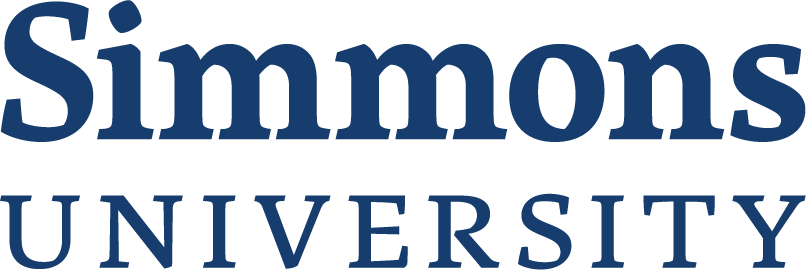Web Developer and CMS Administrator, DLAD, MIT Libraries, Cambridge, MA
Posted June 25, 2015
The MIT Libraries are seeking an experienced, self-motivated individual to work in a team of developers dedicated to the development, implementation and support of the Libraries’ web sites and content management systems.
RESPONSIBILITIES: Reporting to the Head for Digital Library Application Development, the Web Developer and CMS Administrator works in collaboration with other designers and developers to build functional, visually appealing, and responsive web sites and user interfaces in clean, cross-browser, mobile-friendly, and standardscompliant code. Working primarily with WordPress, but also with Drupal and other platforms, the Developer/Administrator translates stakeholder requirements/use cases into technical specifications and designs. S/he makes styling and functional enhancements (including diagnosing and fixing defects) to existing themes and templates, researches and suggests new options, and creates and identifies sources of images and graphics. Responsibilities as CMS Administrator include: administration of a WordPress platform and helping to identify and maintain a sustainable, efficient, and productive technical environment for web development and production support; management of the user environment; and, recommending and implementing plugins and themes. The Administrator performs security reviews and evaluates code updates, establishes backup and recovery processes, and troubleshoots technical issues. S/he is also responsible for maintaining technical and end-user documentation.
QUALIFICATIONS:
Required – A bachelor’s degree with a minimum of 3 years related experience. Well-versed in design, usability, accessibility, and web standards. Experience with responsive design/development. Proficient in current web technologies such as HTML5, CSS, JavaScript libraries (jQuery, Underscore), data encoding formats (XML, JSON), layout frameworks (Bootstrap), and PHP. Experience administering a WordPress platform including installing and configuring sites, plugins, and themes. Experience working in a tiered dev/test/prod deployment environment. Proven ability to identify and maintain a sustainable, efficient, and productive technical environment for web development and production operation. Familiarity with the full web development process, including design, development and deployment, with some knowledge of back-end technologies, e.g. RDBMS systems. Demonstrated motivation for learning new technologies/systems. Excellent verbal and written communication skills including the ability to discuss the technical with non-technical colleagues. Proven ability to be productive independently and in a team-oriented, collaborative environment, to manage projects, be attentive to details, and to meet deadlines and resolve competing priorities.
Preferred – Experience with development environments such as SASS stylesheet preprocessing, the Grunt task runner, and Git-backed development workflow. Experience developing in a Unix/Linux environment. Experience with other CMS platforms such as Drupal. Experience with tools such as Photoshop or Illustrator for processing images and creating graphics.
SALARY AND BENEFITS: Salary commensurate with qualifications and experience. MIT offers excellent benefits including a choice of health and retirement plans, a dental plan, and tuition assistance. The MIT Libraries afford a flexible and collegial working environment and foster professional growth of staff with management training and travel funding for professional meetings.
APPLICATION PROCESS: Apply online at: http://hrweb.mit.edu/staffing/ (Direct link to post here). Please include cover letter, resume, and contact information for three references. Review of applications will begin immediately and continue until position is filled. MIT is strongly and actively committed to diversity within its community and particularly encourages applications from qualified women and minority candidates.
The MIT Libraries support the Institute’s programs of research and study with holdings of more than 2.9 million print volumes and 3.1 million special format items, and terabytes of MIT-owned digital content. In addition, rare special collections, Institute records, historical documents, and papers of noted faculty are held in the Institute Archives and Special Collections. Library resources and services are accessible to students and researchers through the Libraries’ website (http://libraries.mit.edu/), and library spaces are widely available for both collaborative work and quiet study. Library resources are supplemented by innovative services for bioinformatics, GIS, metadata, social science and other research data. Through a culture that encourages innovation and collaboration, the MIT Libraries are redefining the role of the 21st century library – making collections more accessible than ever before, and shaping the future of scholarly research. Library staff, at all levels, contribute to this spirit of innovation and to the mission of promoting learning, discovery and the advancement of knowledge at MIT and beyond.
The Libraries maintain memberships and affiliations in ArchivesSpace, arXiv, Association of Research Libraries, the BorrowDirect, Boston Library Consortium, DDI Alliance, DuraSpace, HathiTrust, CLIR/Digital Library Federation, Coalition of Networked Information, Coalition of Open Access Policy Institutions, EDUCAUSE, National Digital Stewardship Alliance, NISO, North East Research Libraries, OCLC Research Library Partnership, and ORCID. The Libraries utilize Ex Libris’ Aleph for its integrated library system and have recently deployed EBSCO’s Discovery Service. DSpace@MIT, a digital repository developed over the past ten years by the MIT Libraries, serves to capture, preserve and communicate the intellectual output of MIT’s faculty and research community. Other MIT repositories include: Dome, a second DSpace instance, providing access to a sizable image collection and other digital collections owned by the MIT Libraries; the MIT Geodata Repository for a diverse collection of GIS Data; and MIT’s DataVerse for licensed social science datasets.
